Queenstown
As we landed in Queenstown in the South Island of New Zealand, even before the plane wheels had kissed the runway, we could see from the window that we were arriving somewhere spectacular. Queenstown sits in the south west corner of the Otago region of the South Island next to a stunning inland lake, Lake Wakatipu. It is framed by hills and the ski slopes of The Remarkables, one of New Zealand’s premier ski destinations, and as we’d been promised, was a scenic delight!
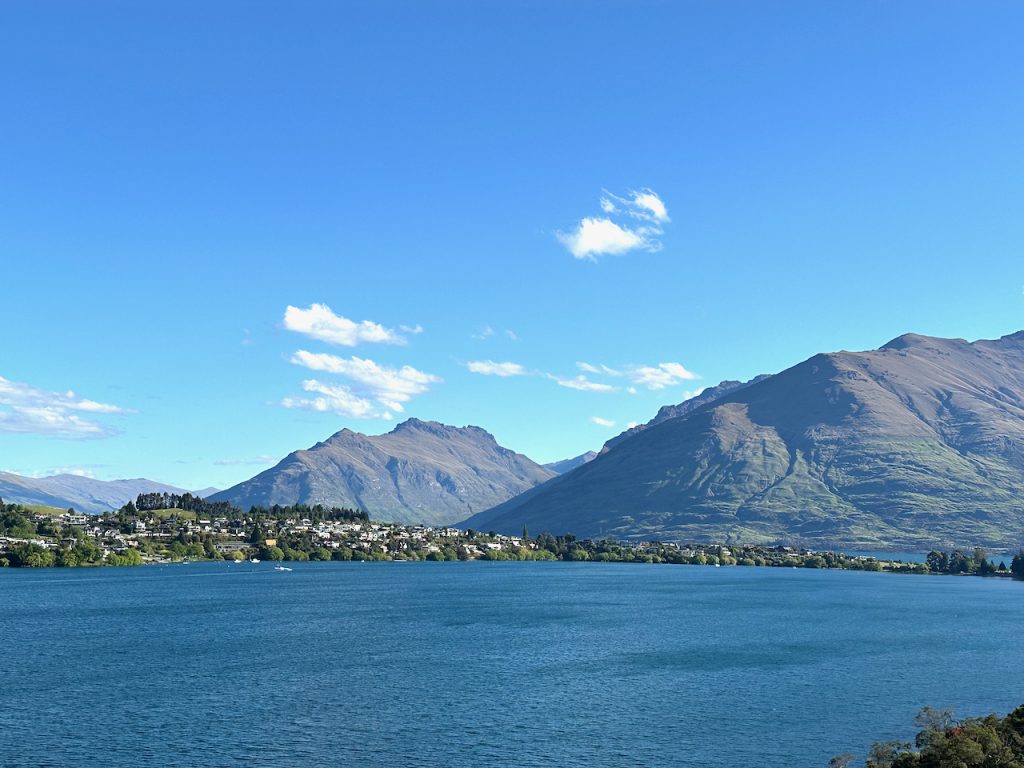
Lake Wakatipu
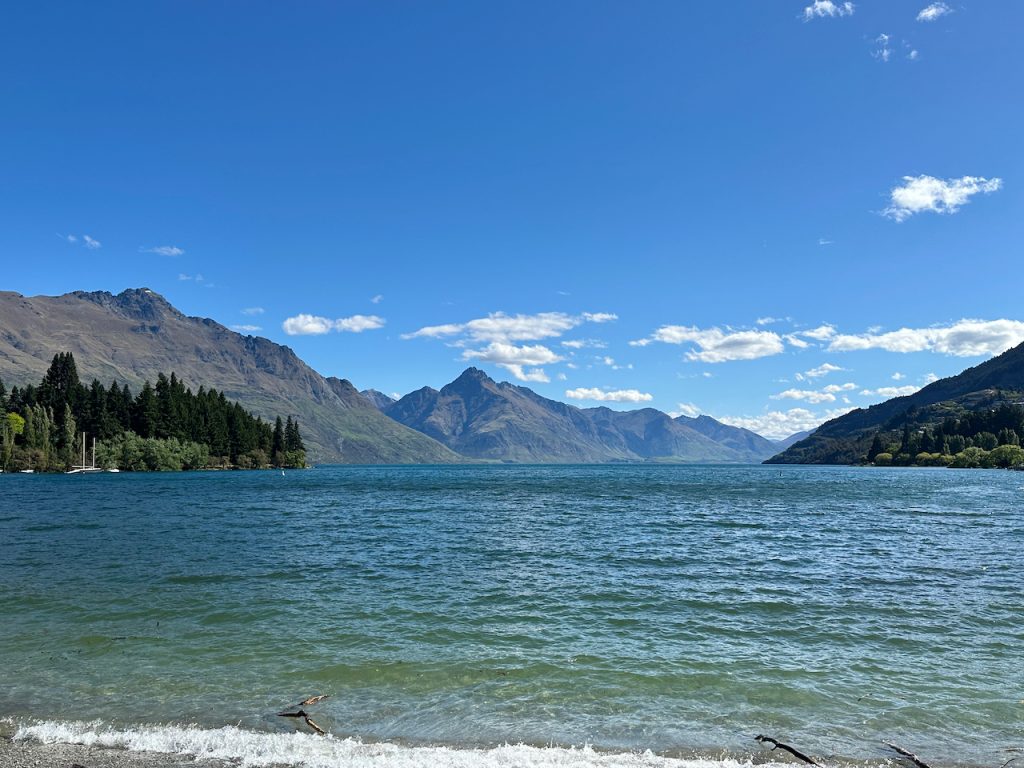
The jetty in Central Queenstown
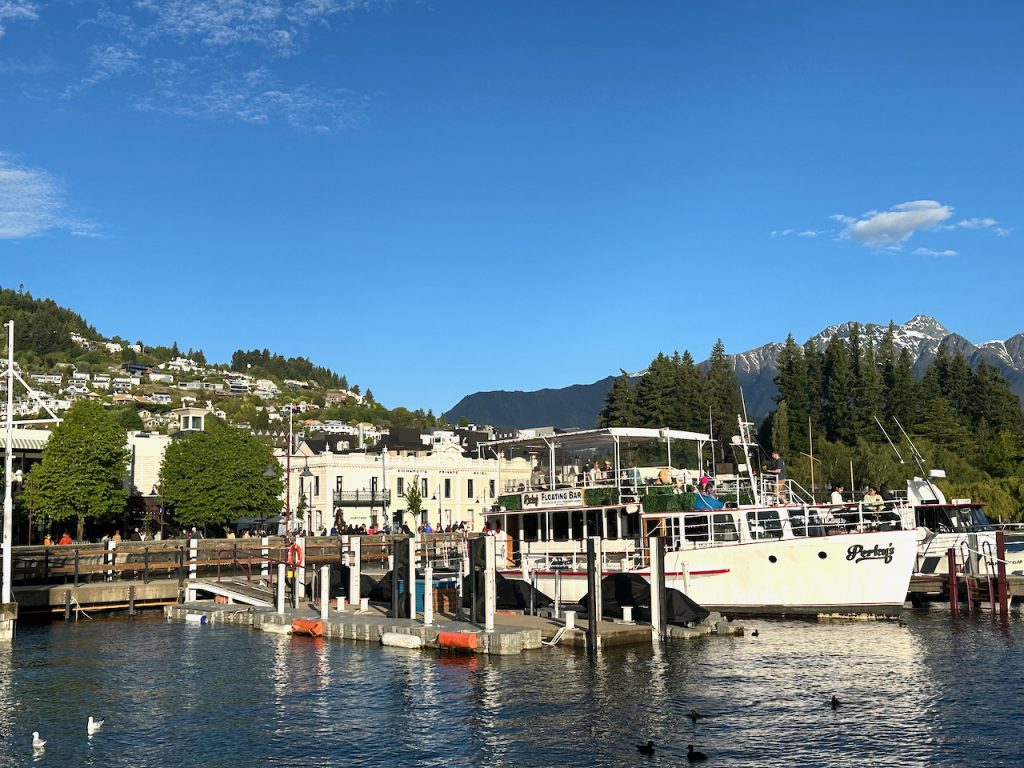
Steam ships in Queenstown
Steam ships like the TSS Earnslaw have been in operation on Lake Wakatipu since the 1860’s. For over a hundred years they were a life line to the community at the end of the lake, known as the Head of the Lake, transporting people, supplies, freight and livestock. Today they are pleasure cruisers enjoyed by many of the hundreds of visitors who come to Queenstown.
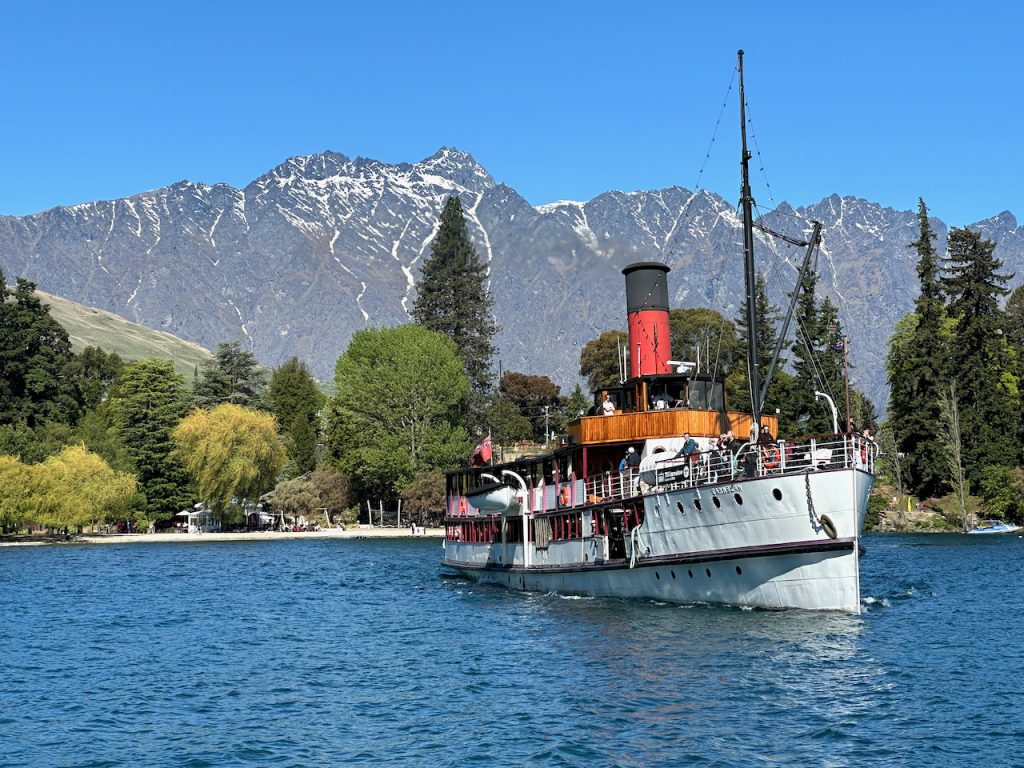
William Gilbert Rees
The statue of William Gilbert Rees, regarded as the founder of Queenstown, sits proudly on the lake front. Rees was born in Pembrokeshire, Wales and originally settled in New South Wales, Australia, in 1852 as a sheep farmer. He returned to England to marry his childhood sweetheart and cousin Frances Rebecca Gilbert and in 1860 came to Queenstown where he established a homestead close to the town’s current center. Two years later gold was discovered in the area inundating it with opportunist prospectors. Rees then converted his wool shed into a hotel named the Queen’s Arms, now the luxury Eichardt’s situated today very close to Rees’ statue.
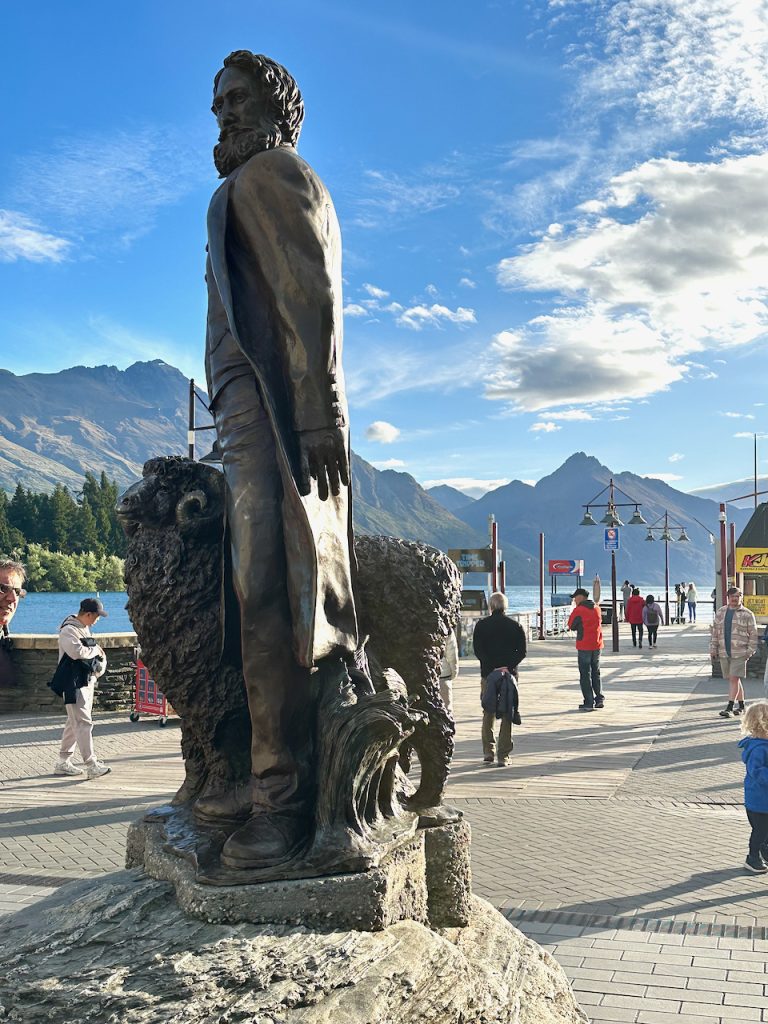
‘Cellar Doors’ near Queenstown
The entire Otago region is full of vineyards, with wonderful tasting rooms or cellar doors as they are known in New Zealand and Australia. It is quite a surprise to see rows of vines growing beneath snow capped mountains.
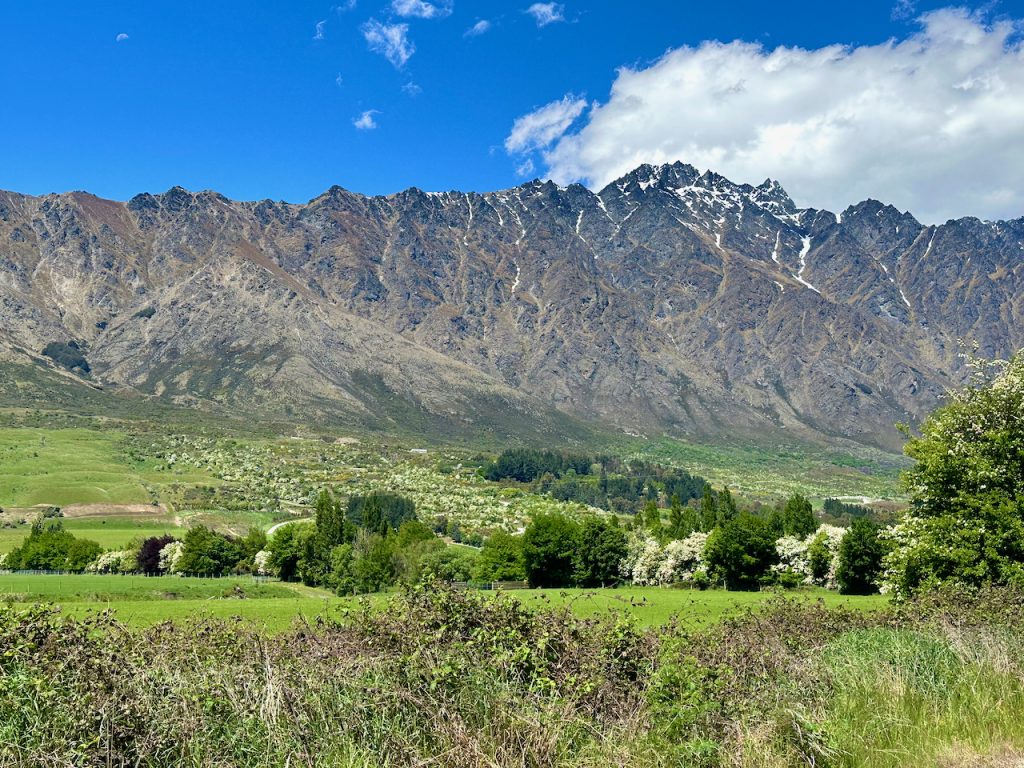
We passed some of them on the drive from Queenstown out to Arrowtown, a historic, former gold mining community, just fifteen minutes away.
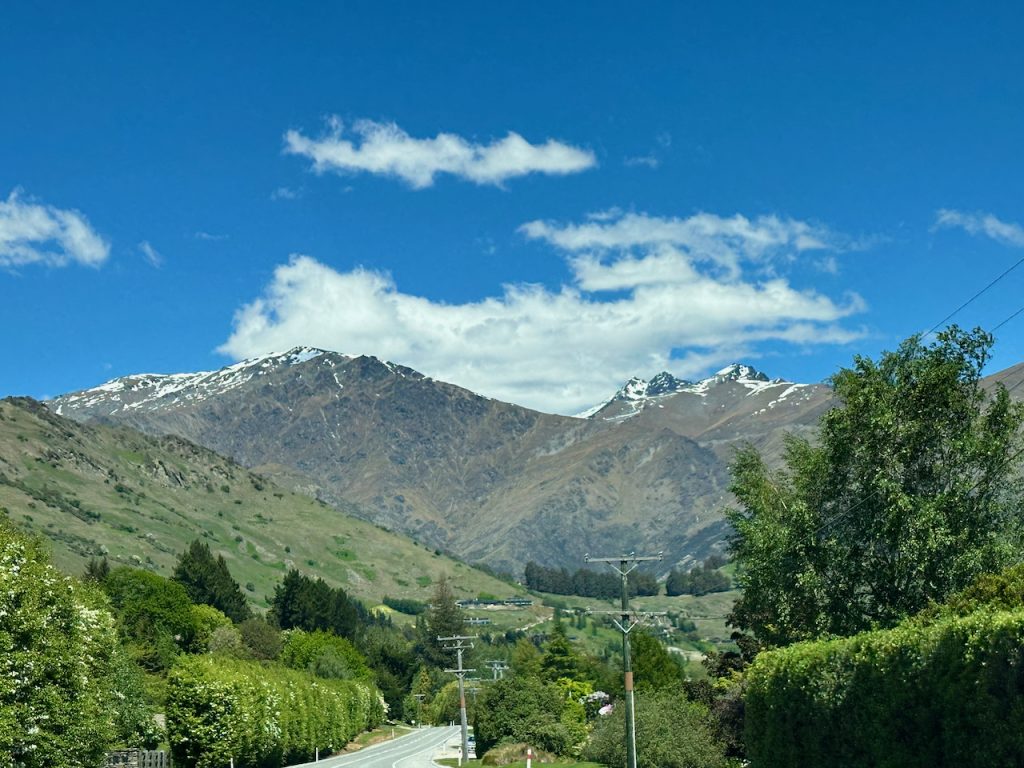
Amisfield Winery
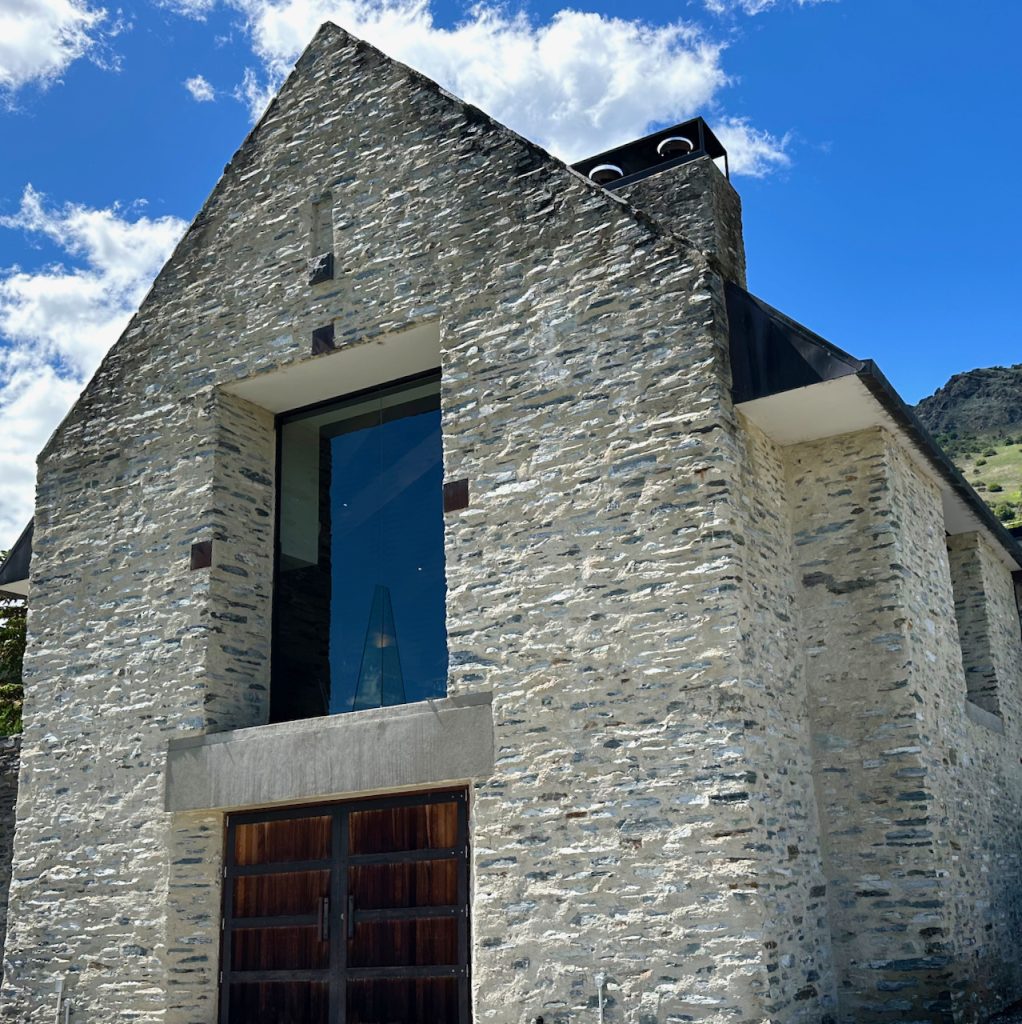
The winery sits beside the shores of Lake Hayes. The architecture of the cellar door and its upmarket bistro alongside the surrounding scenery was very reminiscent of parts of Wales and Scotland. It was easy to see why those early settlers from the British Isles felt at home here.
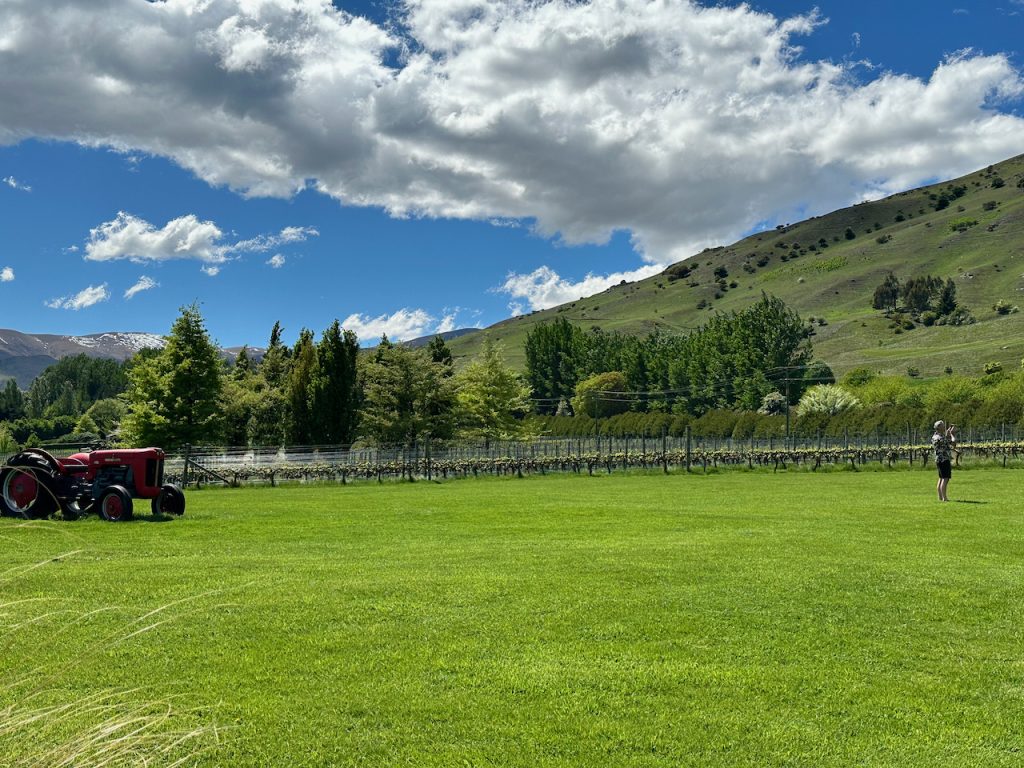
Ayrburn Winery
The nearby Ayrburn Winery became our favorite of the entire trip. Ayrburn is a large estate, beautifully landscaped around a collection of thoughtfully restored, former agricultural buildings. Over one hundred and sixty years, ago Scottish born William Paterson settled here, not long after William Rees had arrived and gold was discovered. Paterson named his farm ‘Ayrburn’, after ‘Ayr’ where he was born in Scotland, and as a small creek ran close by, Mill Creek, he incorporated ‘burn’, the Scottish word for stream, in his name for the property. Paterson’s farm was one of the first in the area and it went on to become one of the most successful.
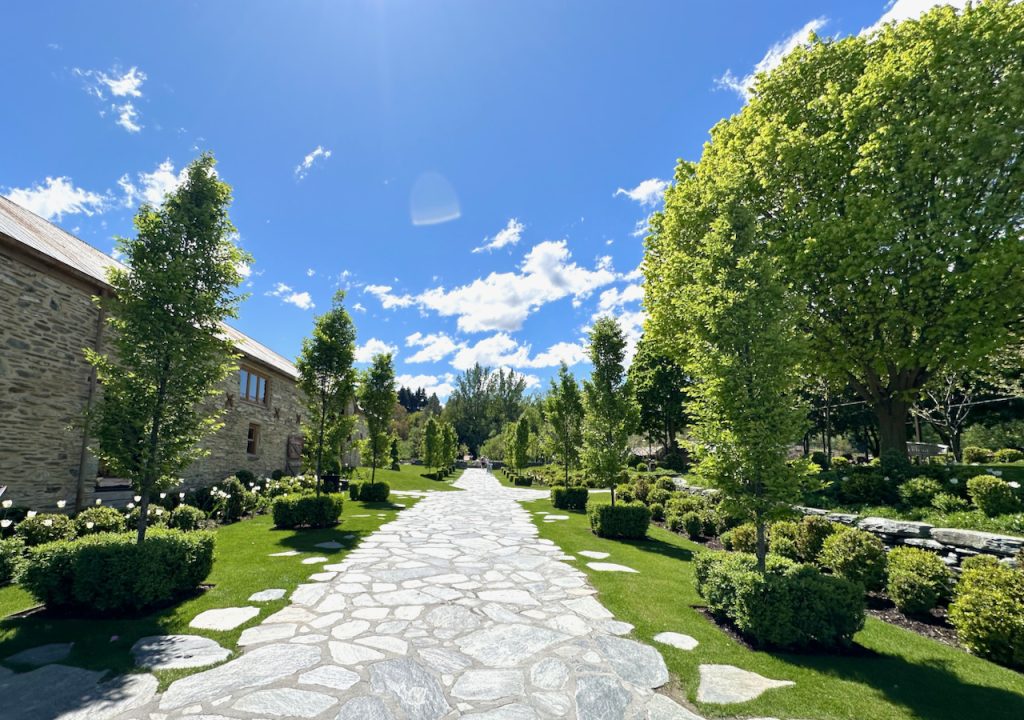
Ayrburn Farm remained a thriving wheat, sheep and dairy farm up until a few years ago when in a complete change of direction, it was decided to use this picturesque location as a winery. In 2021 an extensive and careful renovation of the original farm buildings was begun, altering their use but maintaining their connection to their rich historical past.
The Dairy
When asked to join the Paterson family in their new life in New Zealand, Bessie’s sister, Louise, demanded she be permitted to bring with her cured meats, preserves, two cows for fresh milk and a goat for cheese. The dairy was one of the first buildings to be built at Ayrburn, maybe overseen by Bessie, and was essential for the storage of milk and preparation of butter. Its thick walls and small windows kept it cool, dry and hygienic. Today the dairy houses the ice cream shop.
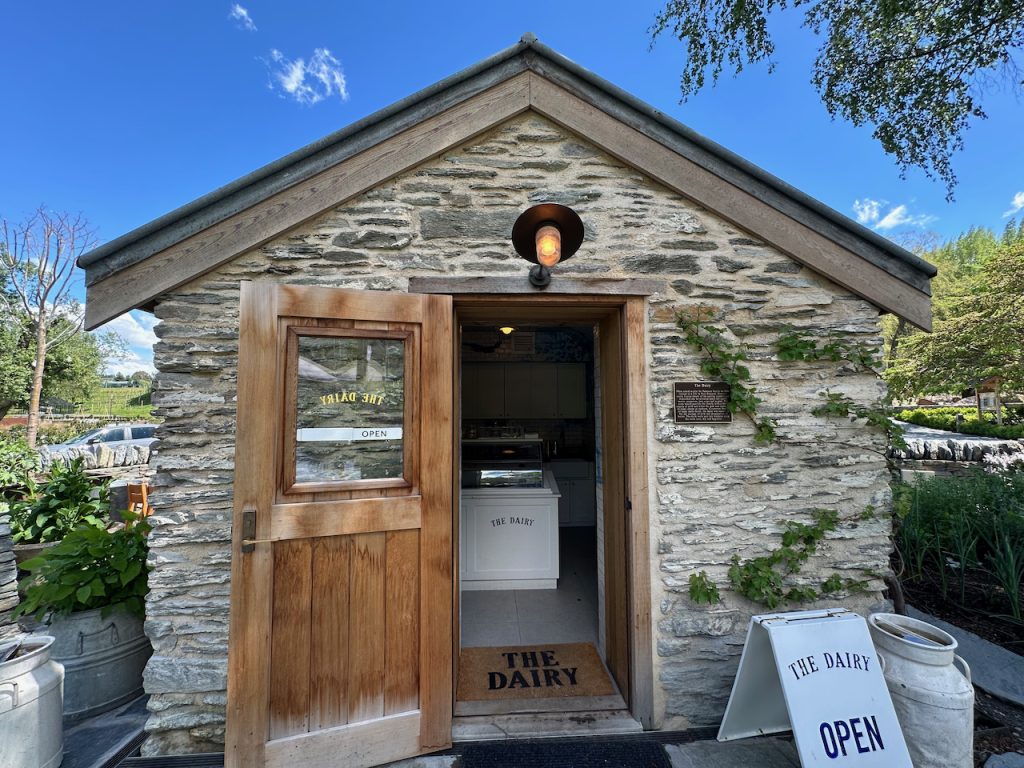
The Woolhouse
The largest building of the original Ayrburn farm, the woolhouse was constructed in the 1860’s. It was saved from a fire in 1882 but gutted from a second fire in 1895. Before its conversion into a woolshed it was a stable for nine horses, with a tack room, a chaff room and a hayloft overhead. Today it is a fabulous bistro-style restaurant. We ate there twice and can highly recommend the delicious food, fabulous service, warm inviting ambience and of course the local wine!
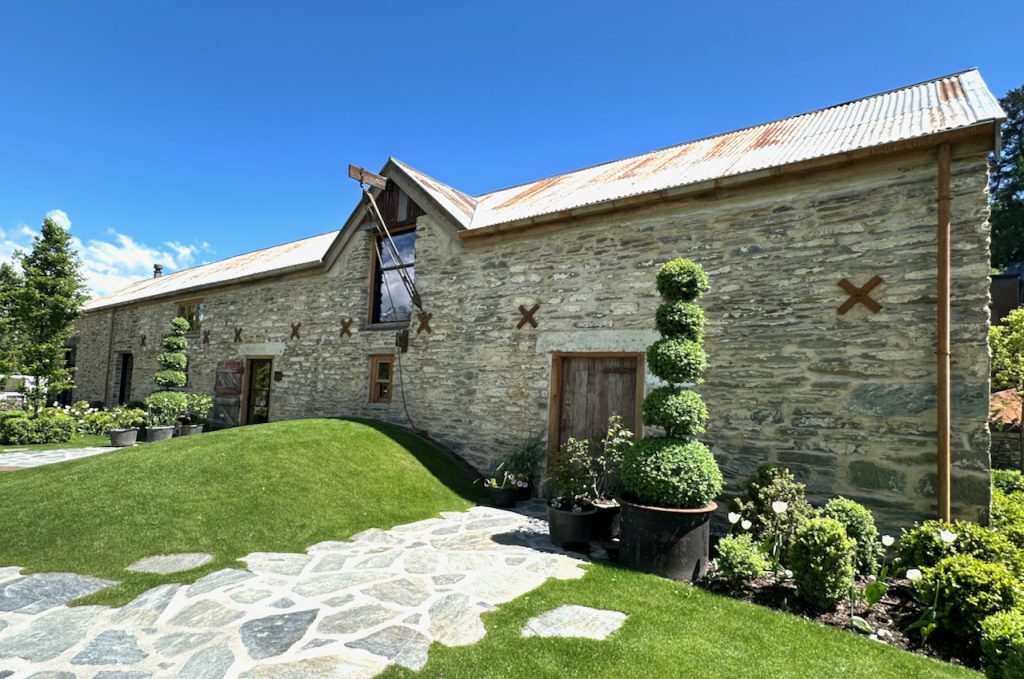
The statues at the side of the Woolhouse are a nod to Ayrburn’s story and are much loved by the tourists for a photo opportunity.
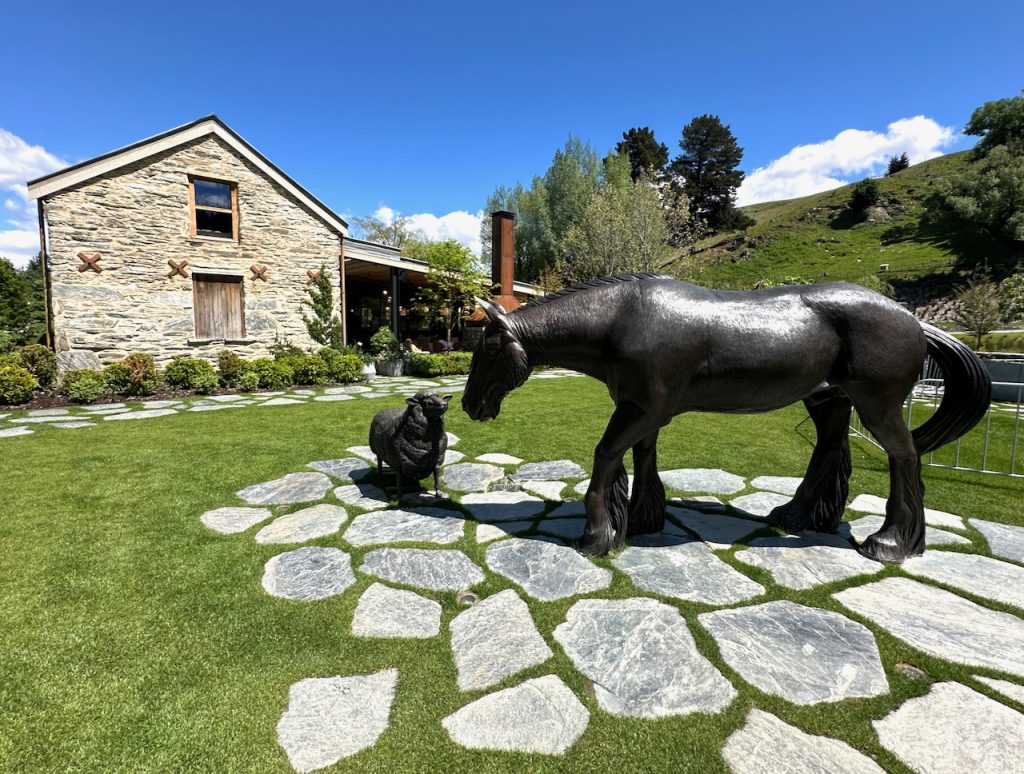
The Manure Room
The Manure Room has an interesting story. In 1918 when Australia was enduring prohibition and a ban on exporting manure Paterson stock piled his own manure in this building. As New Zealand was also wrestling with prohibition Paterson also used it as a speakeasy on the basis that no-one would suspect a place smelling so badly to be a secret drinking venue! It is now one of Ayrburn’s tasting rooms, serving wine flights, beer, cocktails and scrumptious sharing plates.
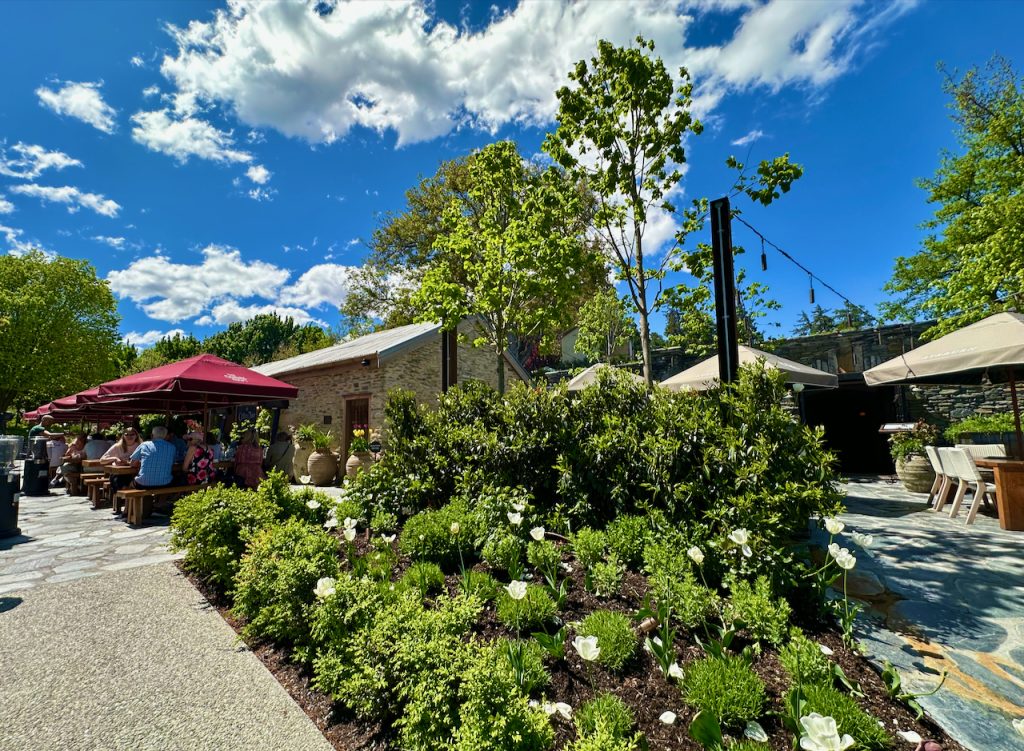
The Burr Bar
Serving the same tasty menu as the Manure Room, we enjoyed lunch in the shade here on our first visit, yes we made more than one!
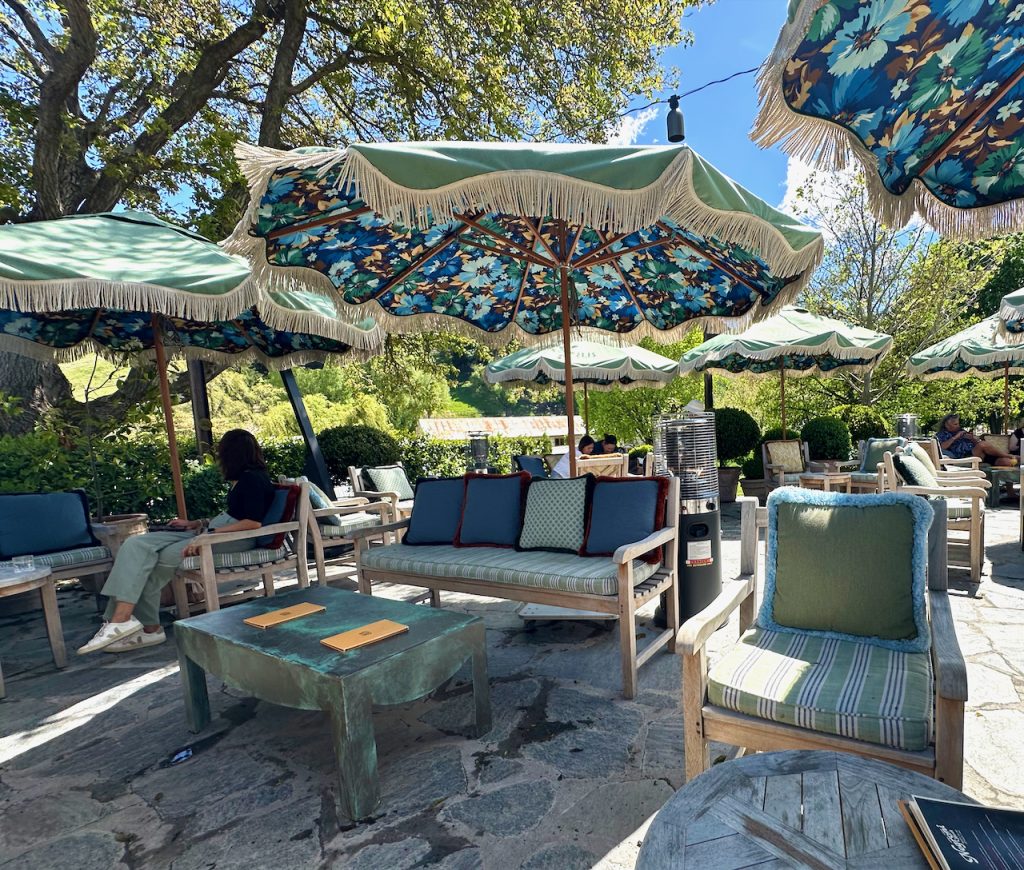
Ayrburn has other places to nibble and sip which we didn’t have time to sample, but hopefully there will be another time!
Arrowtown
Arrowtown, is just a little further along from Ayrburn, 19.5 kilometres east of Queenstown. A delightful former gold-mining town, it was established in 1862. Situated on the banks of the Arrow River, in addition to its historical past, this charming little town offers a wide array of outdoor pursuits, something many people come to the Queenstown area to enjoy. There are numerous hiking, biking, running tracks, trails, and golf courses nearby, and positioned just below the slopes, alpine activities in the winter.
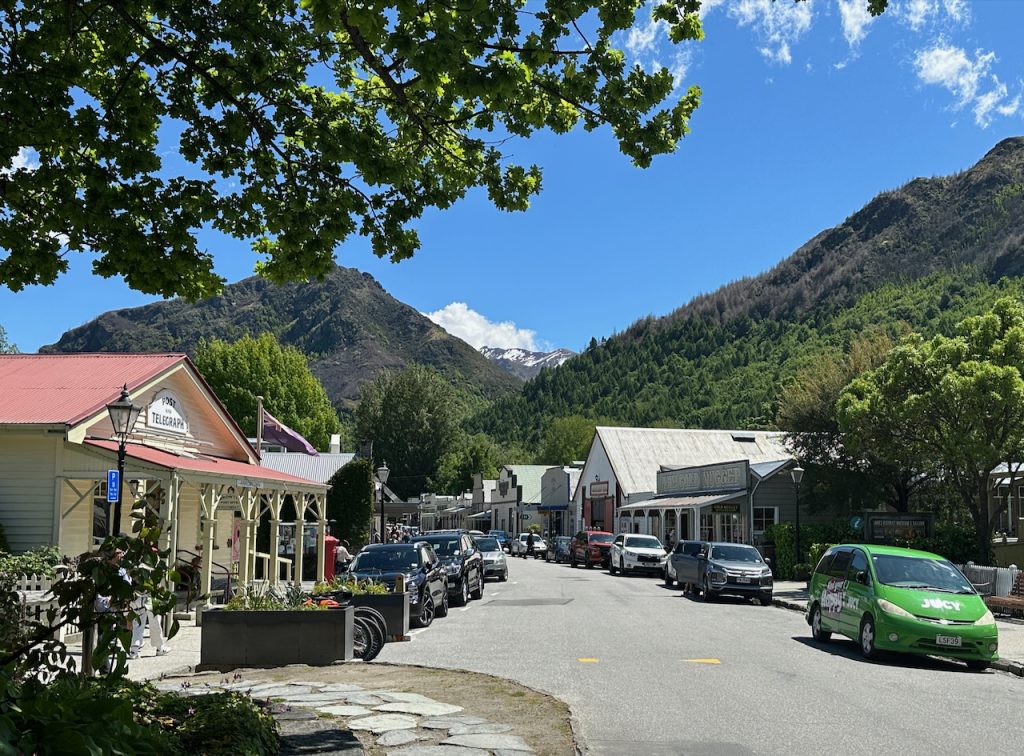
The Postmasters Kitchen & Bar
The original post office was built on this site. This building was built in 1907 for the postmaster and, fortuitously was saved from being demolished in 1997.
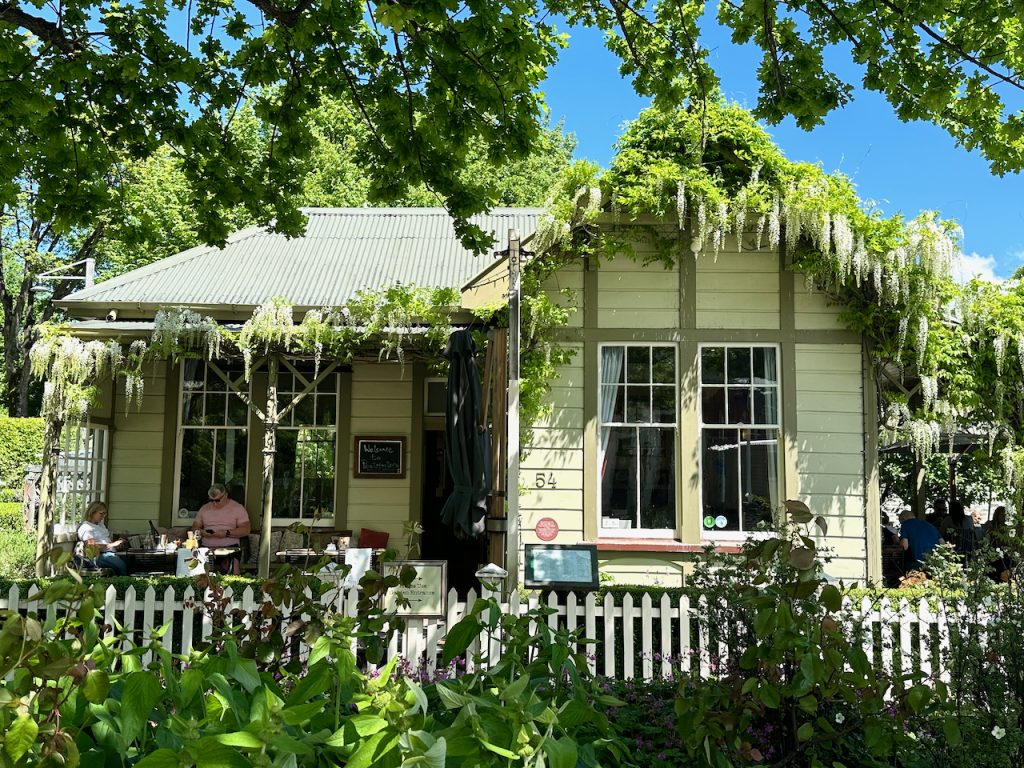
The local pharmacy
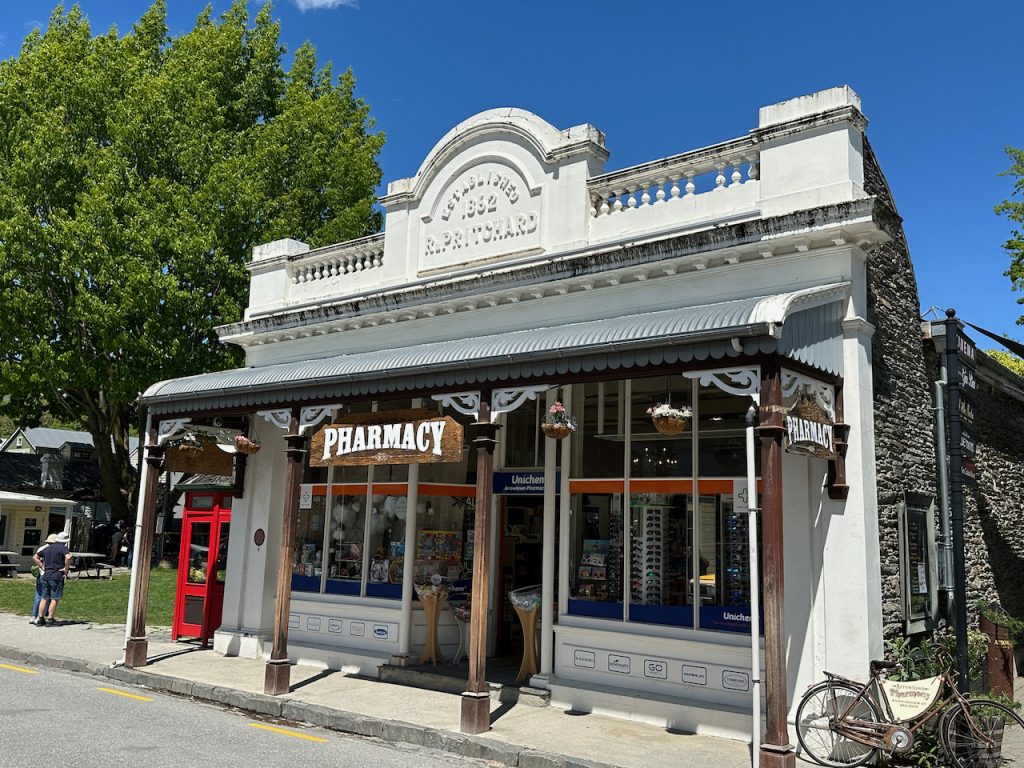
After our afternoon of exploring we left the quaint streets and leafy lanes of Arrowtown and headed back towards Queenstown to our hotel.
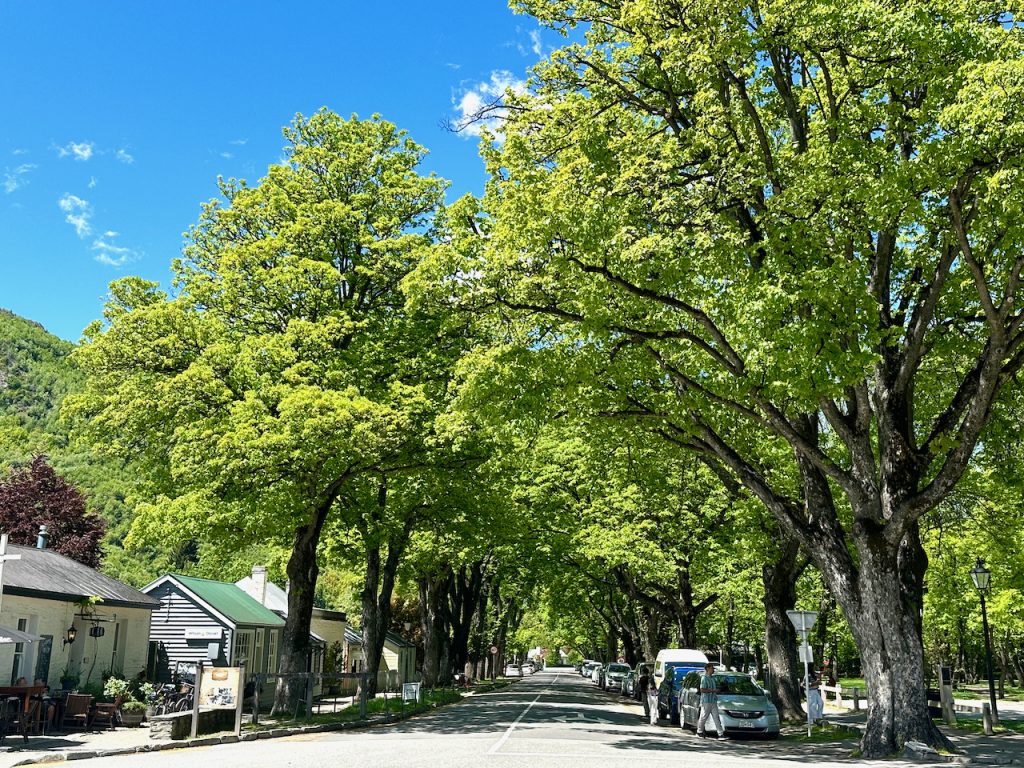
The Rees Hotel, Queenstown
The splendid Rees Hotel is positioned on the banks of Lake Wakatipu. Named after William Rees it is situated in the Queenstown suburb of Frankton, named after Rees’ wife, Frances. We had a spacious room with expansive views overlooking the water:
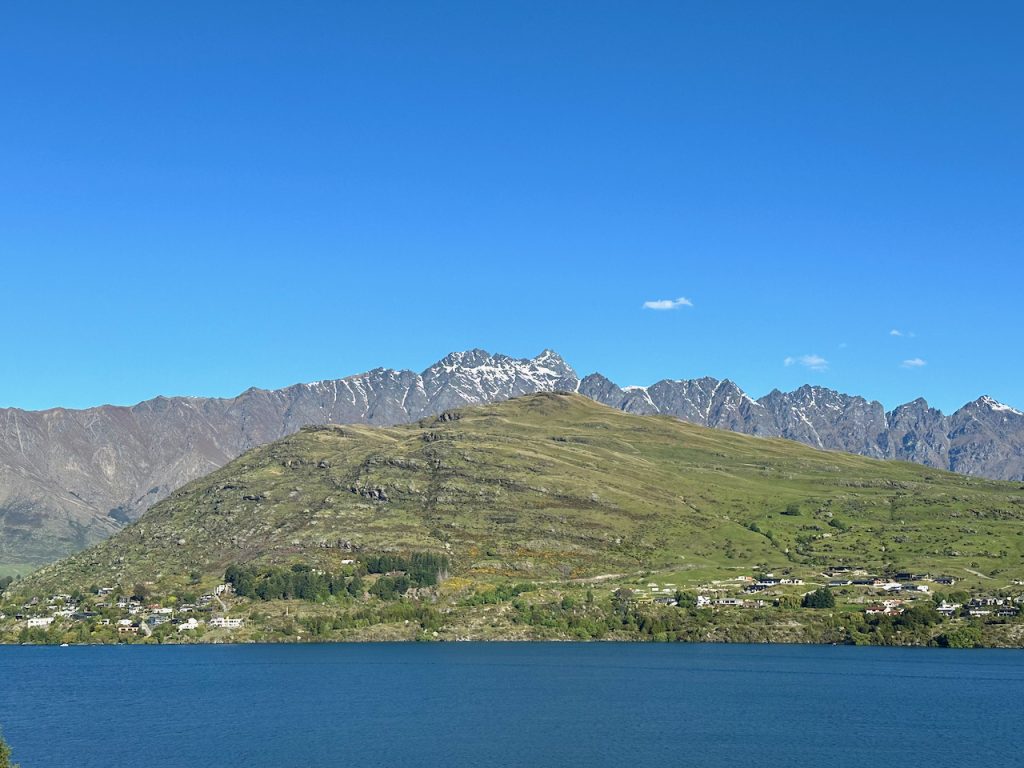
A bust of William Rees takes pride of place in the hotel lobby. In addition to being considered the founder of Queenstown, Rees is thought to have introduced cricket to the region and as a devout Anglian, he helped in the construction of St Peter’s Church in central Queenstown. Having spent just a few hours in the area, albeit long after Rees’s arrival it was easy to imagine how he was captivated by this beautiful region about which he said:
“I saw an open country not perfectly level but broken by small hills and terraces. Whilst a large lake or arm of a lake stretched away in the distance almost as far as the eye could reach.”
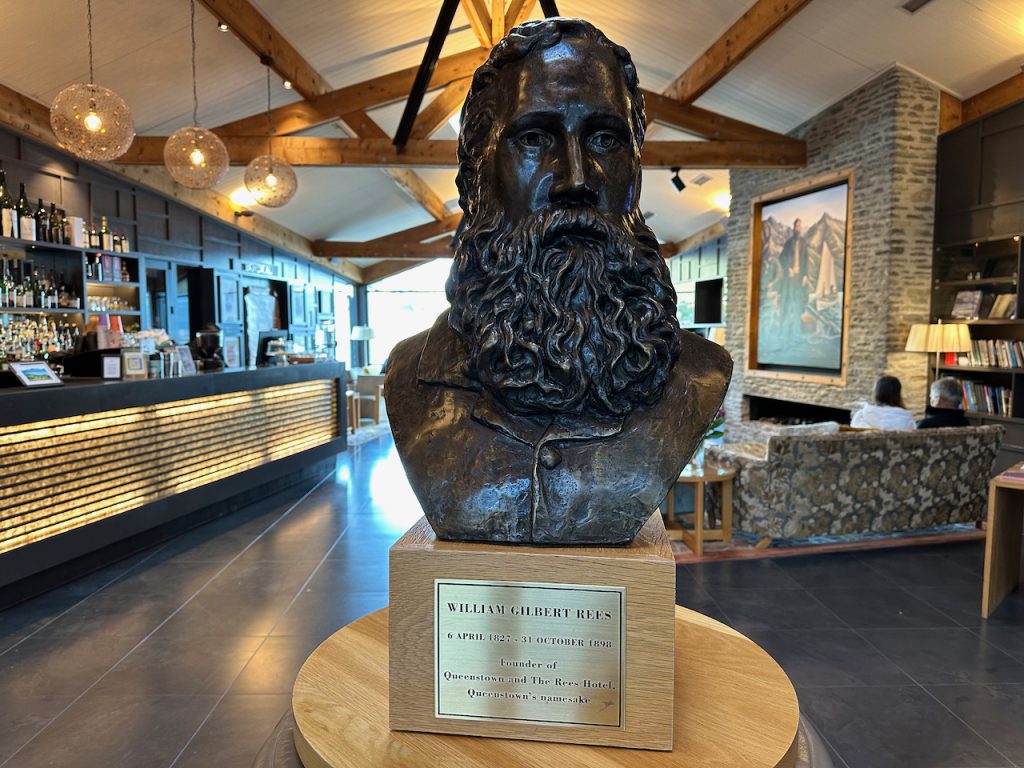
On our first night in Queenstown we returned to Ayrburn’s Woolhouse for dinner.
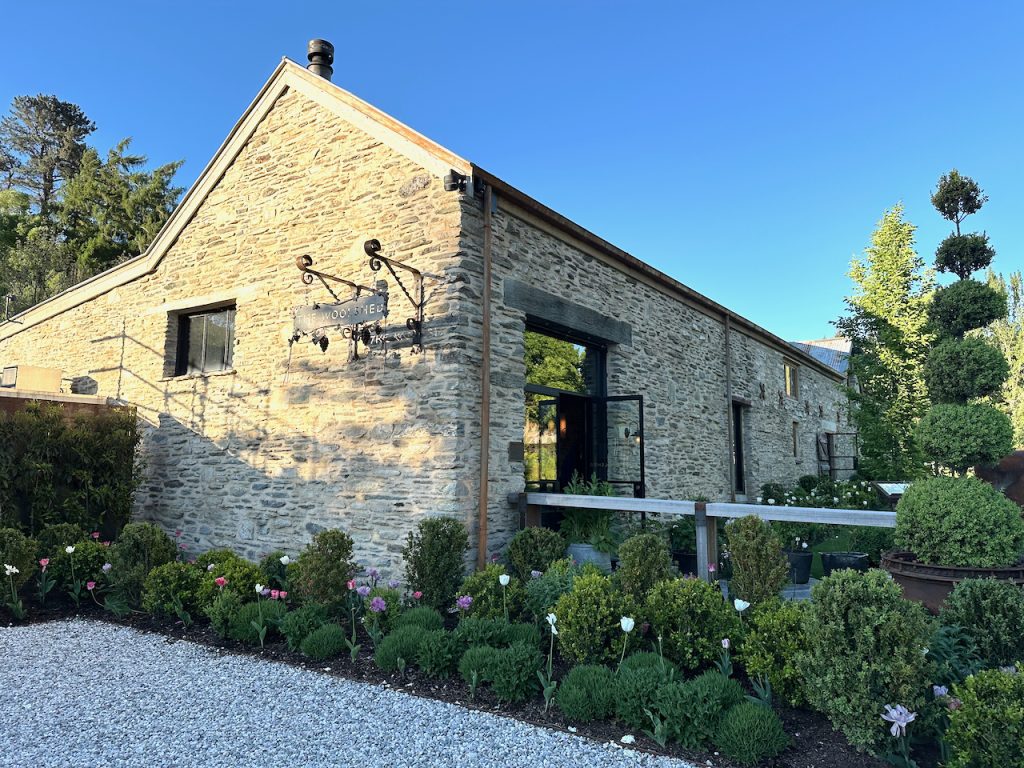
The friendly and attentive young waiter made the experience extra special, he was French and delighted to parler français, even with us! Like many of the young people we met in New Zealand he was excited to be working there for a few months, keen to improve his English and explore the region. Bonus for us to meet him and practice our terrible French!
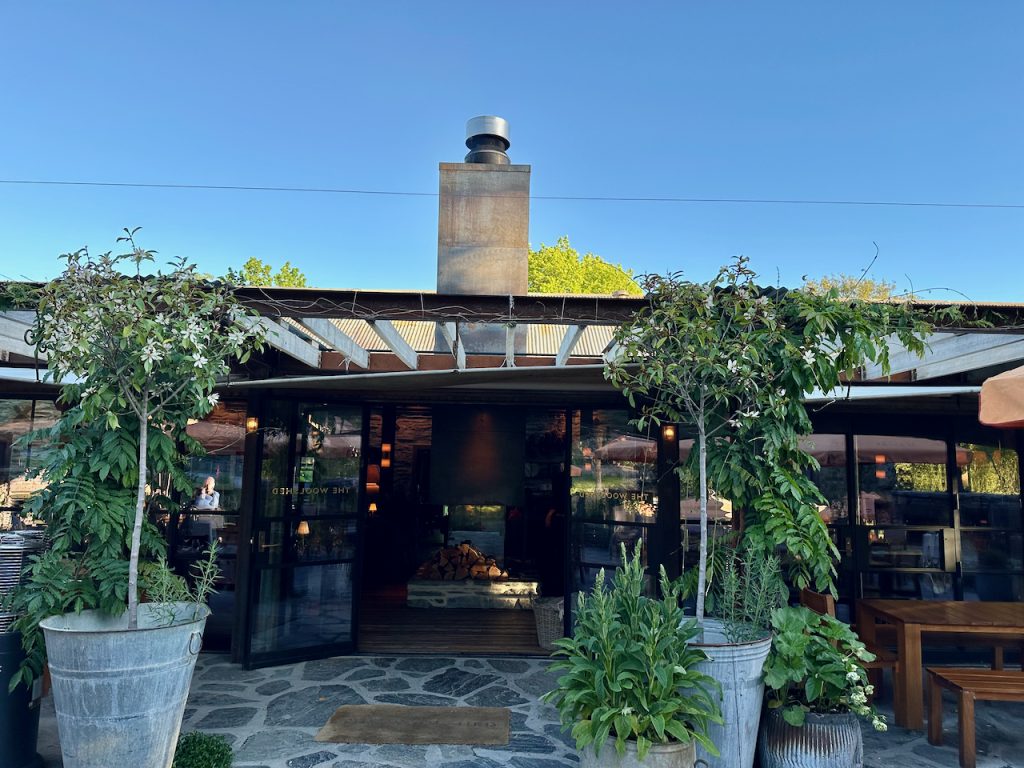
The next day we were set for our next adventure, to explore the film locations used for Tolkien’s classics, but would we meet a hobbit, watch this space!

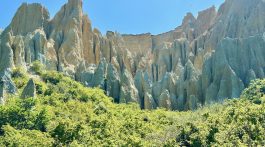
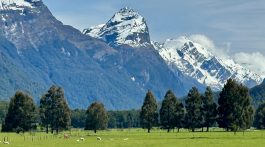
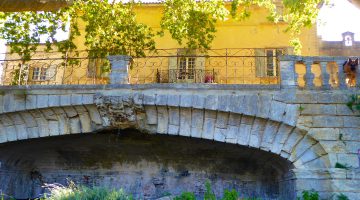
No Comment